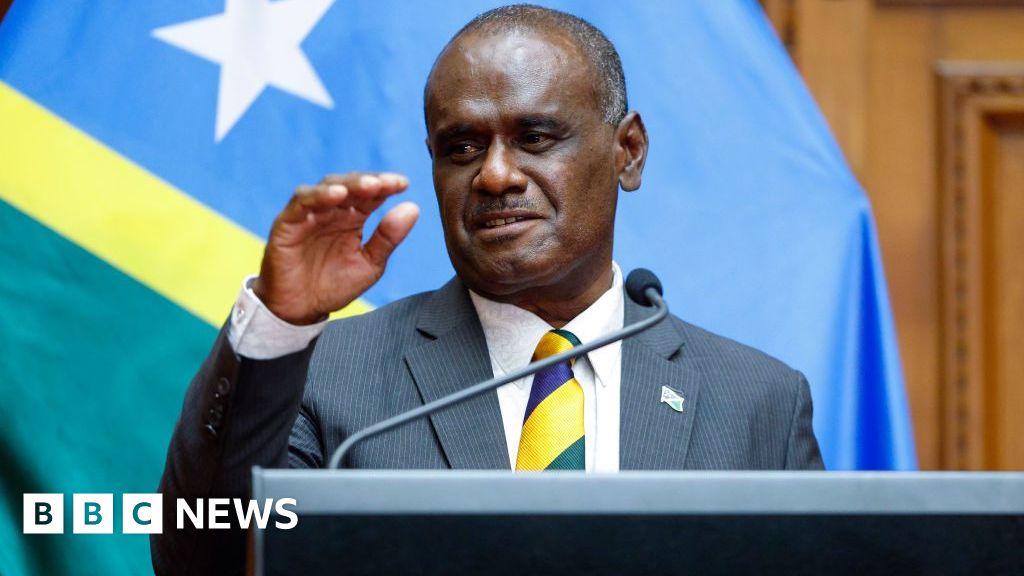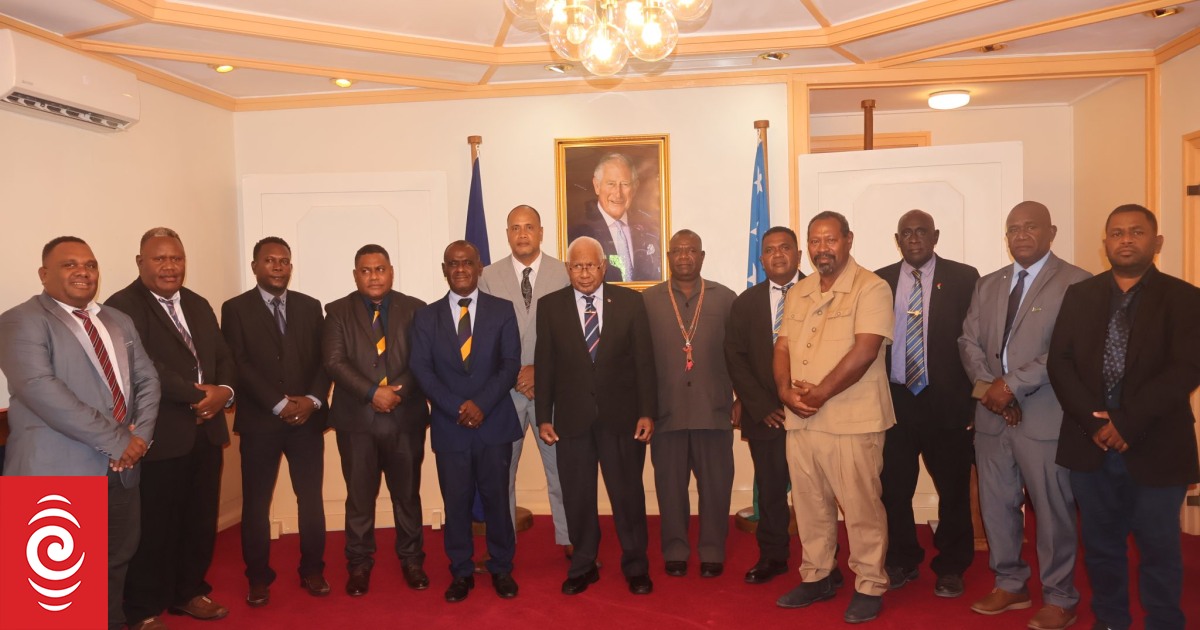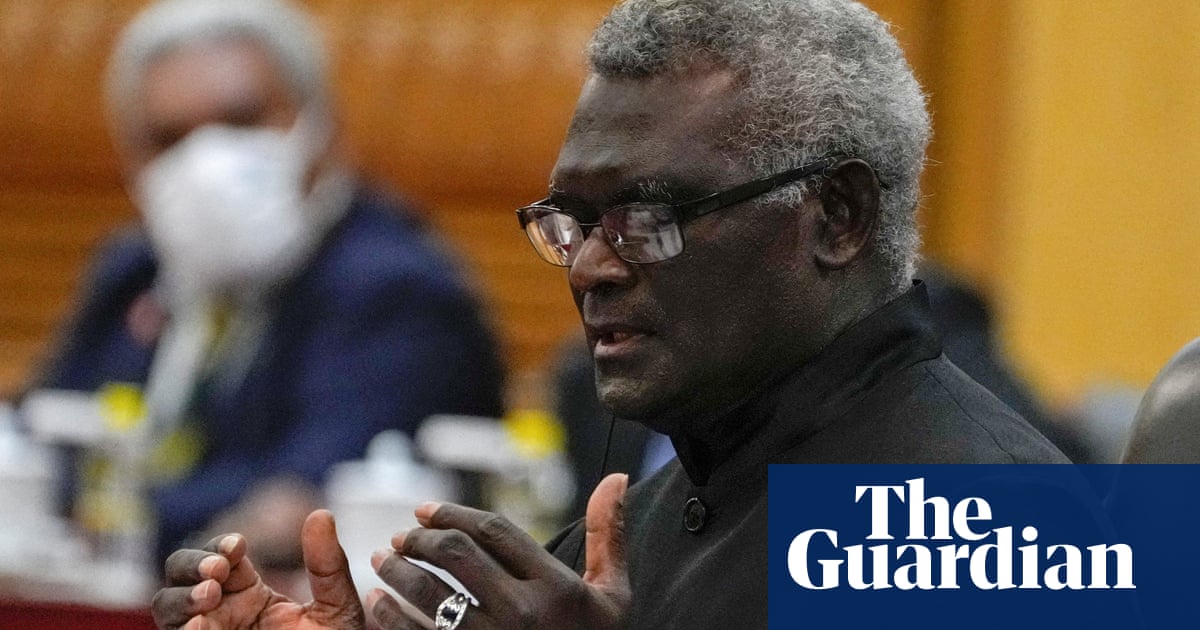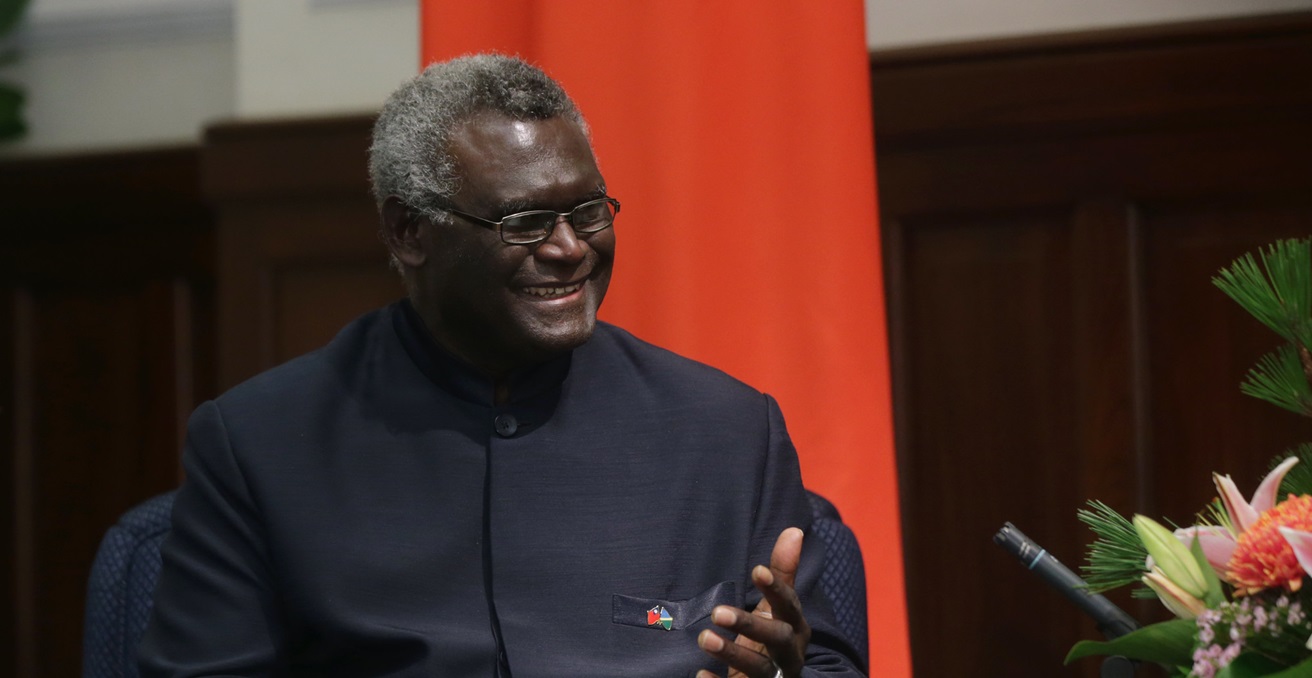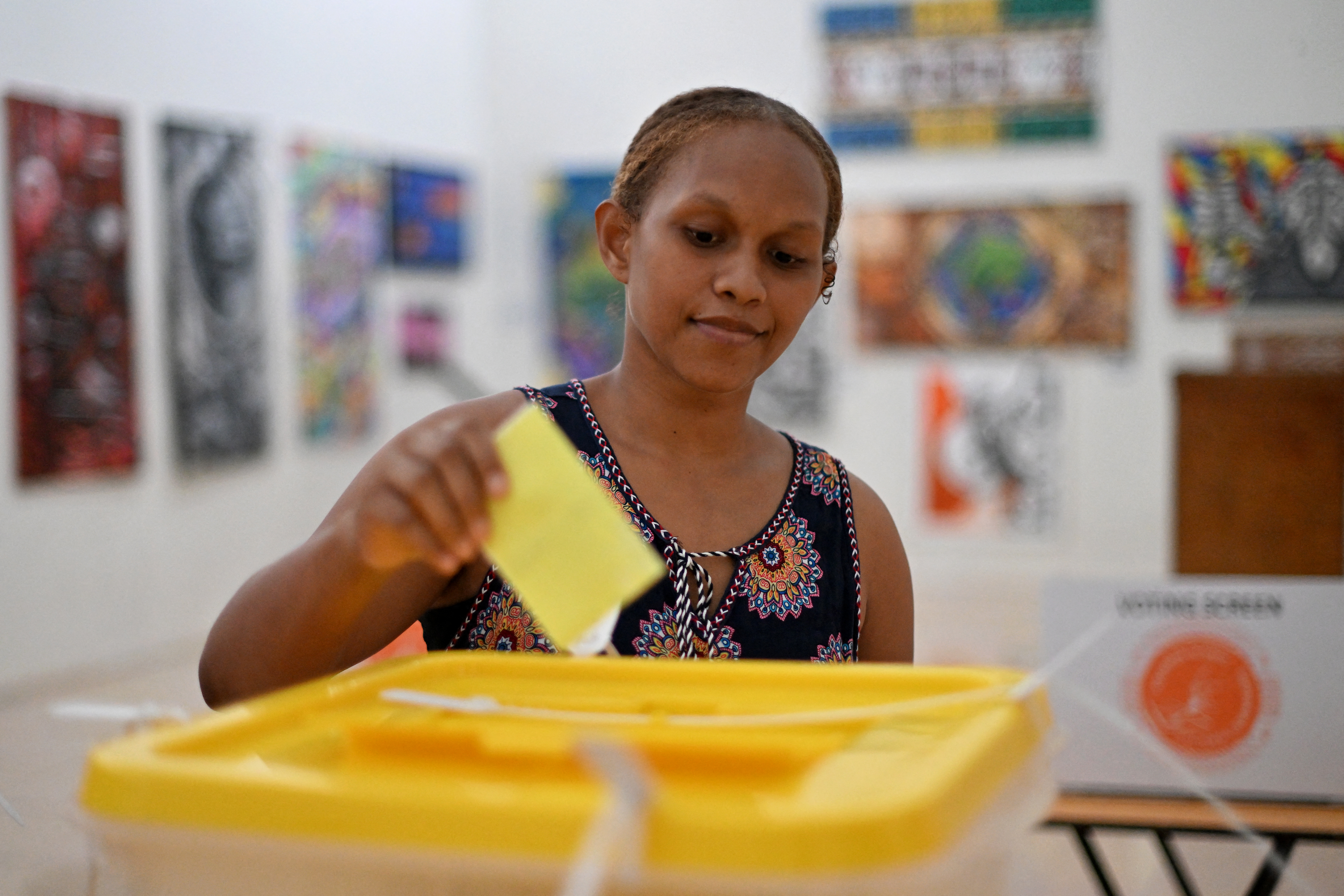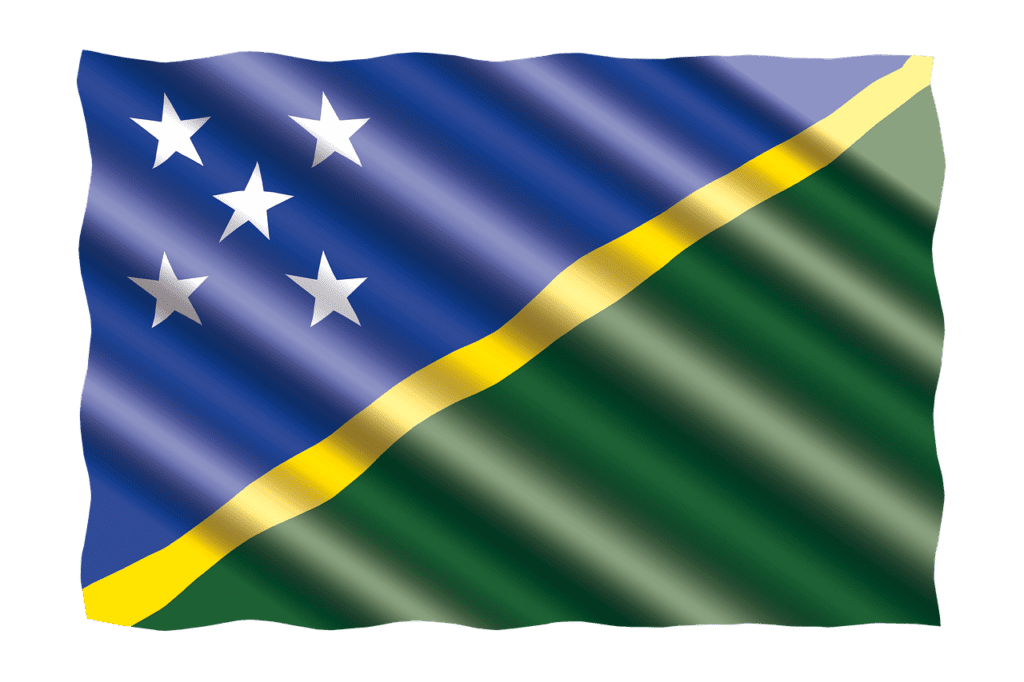
by Eva U Wagner
Solomon Islands – 2024 General Elections
#2/24
10 May 2024
Facts & Figures
The Solomon Islands is an archipelago of more than 100 islands with 9 main island groups located in the south-west Pacific. The capital Honiara is based on the largest island, Guadalcanal. The population is estimated at over 700,000; predominantly Melanesian with small Polynesian, Micronesian, Chinese and European communities. Many Solomon Islanders make a living from farming and fishing. Whilst English is the official language, Solomons’ Pijin is most commonly spoken. As evidenced by the 2019 Census, the country is mainly Christian, with the Church of Melanesia having the most followers (about 32% of the population, up by 40% since 2009), followed by the Catholic Church (about 20% of the population, up by 42% since 2009).
In 1893, the British Government established a protectorate over the eastern group of islands, with Germany controlling most of the Western islands. Later on, the British protectorate was extended to cover the nine main groups of islands. Buka and Bougainville became part of German New Guinea and were eventually incorporated into Papua New Guinea. In 1976, the Solomon Islands were granted internal self-government. The island state became independent on 7 July 1978 and joined the Commonwealth of Nations.
The political system provides for a unicameral national parliament with 50 members being elected for four years term under a first past the post voting system. The prime minister is elected by a simple majority of members of the parliament. Party structures are fluid, meaning the formation of governments usually requires complex coalitions. There are also nine provincial assemblies, each of which is led by a premier.
Source (including more details): Solomon Islands country brief | Australian Government Department of Foreign Affairs and Trade (dfat.gov.au)
Run up to the elections
The Solomon Islands has experienced turbulent times since the previous general elections.
In 2019, the then (now former) Prime Minister Manasseh Sogavare decided to cut ties with Taiwan, enabling the country to resume diplomatic relations with China. At the time, people in the streets raised concerns about the decision, arguing a Christian country’s values were incompatible with those of an authoritarian state. In 2020, the province of Malaita, led by its former premier Daniel Suidani, held an independence referendum which the federal government dismissed as illegitimate. In 2021, riots broke out in Honiara, with protesters trying to storm the former PM’s residence and targeting predominantly Chinese businesses. Many of the protesters came from the island of Malaita, the most populous island, reportedly discontent with a perceived unequal distribution of resources and lack of economic support leaving their province as one of the least developed. Media also reported lingering dissatisfaction over the central government’s decision to turn their backs on Taiwan. The riots were ultimately brought under control with the assistance of peacekeepers from Australia, New Zealand, Fiji and Papua New Guinea.
In 2022, the Solomon Islands entered into a security agreement with China. Whilst the terms of the final agreement are unknown, a draft was leaked on social media which raised the alarm bells in Australia, the United States, and other like-minded countries (see Digital Snapshot 6/22 SOLOMON ISLANDS – Security made in China and #8/22 SOLOMON ISLANDS – Australia’s Red Line in the Pacific for further details). In 2023, the United States reopened its embassy in Honiara, 30 years after it was closed. This did not prevent Sogavare from visiting China for the second time since 2019. Further, it did not prevent the former PM in his speech to the United Nations General Assembly from saying that the People’s Republic was his country’s lead infrastructure partner, and praising Bejing’s development cooperation as “less restrictive, more responsive and aligned to [his country’s] national needs”. He also ostentatiously skipped the 2nd US-Pacific Forum in held Washington DC, sending the then foreign minister (now prime minister), Jeremiah Manele, instead. In the same year, the Solomon Islands hosted the 7th Pacific Games for which China donated seven stadiums and venues built by Chinese companies. In addition, the former PM postponed the election until a date after the Pacific Games (November 2023) on the ground that his country did not have the resources to host a major sporting event and elections at the same time.
General elections
The general (federal and provincial) elections were ultimately held on 17 April 2024.
The official (federal and provincial) election results may be found here. According to media reports, the former PM’s Ownership, Unity and Responsibility (OUR) Party has won 15 seats, meaning whilst the party remains the largest in parliament, no less than 18 of their former ministers lost their seats. The former opposition leader Matthew Wale’s Democratic Party has secured 11 seats. Peter Kenilorea, the son of the country’s first post-independence prime minister, achieved 6 or 7 seats for his United Party. Seven members of parliament-elect belong to smaller parties, amongst them Amoi Chachabule’s (a businessman from Marovo) Peoples First Party. Further, ten independent candidates were elected. In other words, no party has achieved the majority required to govern in their own right.
As for the reasons for the election outcome, experts seem to agree it is rather owed to economic factors than concerns about Chinese domestic influence. In the Lowy Institute’s words:
The economic downturn since 2020, and a major contraction in log exports to China, conflicted with Sogavare’s promises of considerable developmental gains arising from the new diplomatic disposition.
The ANU’s Development Policy Centre considers there to exist a historic relationship between economic performance and incumbents’ electoral fortunes. The country’s GDP per capita, we are told, had contracted considerably in recent years. Further, the Centre presumes that so called Constituency Development Funds (CDFs), ie largely government-funded monies which MPs may spend as they please, have fallen in real per capita terms.
New prime minister and cabinet
The selection of a new prime minister saw former PM Sogavare withdraw as a candidate, saying his government had been “under pressure from the United States and Western allies”, and that he had been “accused of many things”. His party backed former foreign minister Jeremiah Manele instead, who was ultimately elected by secret ballot as the country’s new prime minister, defeating his opponent Matthew Wale in a 31 to18 count. The new PM has meanwhile announced the first 11 ministers of his new cabinet; another 12 ministers are expected to be sworn in shortly, including the minister of finance and treasury, infrastructure and development.
The Guardian describes PM Manele as “China-friendly”. Indeed, he was the foreign minister when the country cut its ties with Taiwan in 2019, and said that if elected he would continue the same foreign policy basis – “friends to all and enemies to none”. Following his election, PM Manele said that “the people have spoken” and called for calm. As per unofficial statements from diplomatic circles, the majority of people in the streets seem pleased with the new leader. This gives hope that the situation may remain calm for now.
Provincial elections
The outcome of the provincial elections is arguably no less important for the future of the Solomon Islands. This seems to apply, in particular, to the re-election to the provincial assembly of the former premier of Malaita. Whilst in office, Daniel Suidani not only spoke out openly out against closer ties with China but also refused to accept Chinese development assistance. He was also responsible for the province of Malaita’s 2020 independence referendum. As a result, he was removed from his position by way of a (reportedly orchestrated) non-confidence vote in February 2023. He was replaced by a pro-China administration led by Martin Fini, who lost his seat in the latest provincial elections.
In sum, whilst the federal elections are likely to result in a continuation of the former prime minister’s policies, both domestically and in terms of foreign affairs, there are still too many uncertainties to predict the direction the country will take from here.

